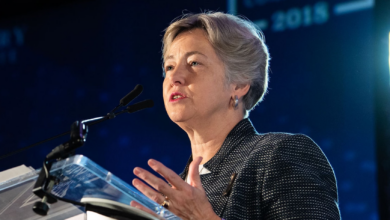
Three Local Gay Judges Lost their Elections
Only one LGBTQ candidate will be on November’s judicial ticket.

Three openly gay incumbent Harris County judges were defeated in their bids to be re-elected in November. Judges Steve Kirkland, Daryl Moore, and Randy Roll all lost to female challengers in the Super Tuesday Democratic primary.
Judge Kelli Johnson, an openly LGBTQ woman who is seeking re-election to serve Harris County’s 178th District, faced no opponents during her primary election and will be on the ballot in the general election on November 3.
According to longtime Houston LGBTQ political activist Jack Valinksi, “It seems that there was a leaning to vote for females.” Judge Kirkland admits that it was a difficult loss. “I’m still processing it. I know most elections are not personal, and the results of this one show it was all about gender. Still, for the first time since 2012, there will not be a gay man on the Democratic judicial ticket in Harris County. And that feels personal.”
Judge Daryl Moore lost his re-election bid in the 333rd Judicial District to newcomer Brittanye Morris, who won 61 percent of the vote. Morris, a female candidate, did not screen with the Houston GLBT Political Caucus. Moore won the judicial seat in 2016, and the 2019 Houston Bar Association’s ratings placed him first among all the local judges, with 68 percent rating him excellent and 15 percent rating him very good.
Judge Steve Kirkland was defeated by another female newcomer, Dawn Deshea Rogers, in a 55 to 45 percent race in the 334th Judicial District. Rogers did screen with the GLBT Caucus. Mike Webb, president of the Caucus, says that Rogers scored high in the screening but did not contest Kirkland’s Caucus endorsement out of respect for Kirkland.
Kirkland served as a City of Houston municipal judge from 2001 to 2008, and as the 215th District Court judge from 2008 to 2012. In 2012, he lost his bid for re-election to a candidate funded by a disgruntled defendant in a class-action suit that Kirkland presided over. A campaign of dirty tricks helped ensure his 2012 loss. From 2016 to 2020, Kirkland has served the 334th Judicial District. The Houston Bar Association’s 2019 judicial evaluation had 40 percent rating him excellent and 24 percent rating him very good.
Judge Randy Roll lost his re-election for the 179th District Court to female opponent Ana Martinez. Roll has been the judge of 179th District since 2009. Martinez screened with the Caucus and won its endorsement. Webb explains that the Caucus membership is now more intersectional and felt that Martinez demonstrated more sensitivity to Houston’s communities of color. Roll scored 22 percent excellent and 10 percent very good in the Houston Bar Association’s 2019 ratings.
In addition to the three losing incumbents, Jim Evans, who is openly gay, ran for the Texas 14th Court of Appeals, but lost to female challenger Jane Robinson, who received 81 percent of the vote. Evans was appointed as an associate judge for the 507th Family Court on January 1, 2017. Robinson, who has a transgender child, screened with the Caucus and won their endorsement after scoring better on LGBTQ issues, according to Webb.
In the judicial primary races, there were several other male incumbents who were not challenged, raising speculation that gay male incumbents were being targeted with primary challengers. “It’s very concerning that there are still disparities in the system for gay men. We need to do a better job working with and engaging other allied communities [so that we don’t] run against each other,” Webb notes.
In the 2020 Democratic primary, the Caucus endorsed 60 candidates, and 38 of those either won their races outright or advanced to a run-off.
The Harris County judicial system had been in Republican hands for decades before the move away from Republican control began in 2014, when 13 percent of the Harris County judiciary went blue. In 2016, that number increased to 32 percent. The 2018 midterms brought the Democratic total to 100 percent.
Harris County is the nation’s third-largest county. Its judiciary consists of 61 district courts, 4 probate courts, 4 county civil courts, and 16 county criminal courts, for a total of 85 judges. Its judicial terms are four years, and the benches are staggered for elections every two years.
Five openly LGBTQ judges will remain on the Harris County bench until the 2022 election: Beau Miller, District Court 190; James Kovach, County Civil Court 2; Shannon Baldwin, County Criminal Court 4; Jerry Simoneaux, Probate Court 1; and Jason Cox, Probate Court 3. Additionally, Charles Spain will remain in his position on the Texas Fourteenth District Court of Appeals, Place 4, until 2024.
Texas Republicans, concerned about the statewide success of Democratic judicial candidates, voted to end “straight party” voting, which will take effect with the 2020 general election on November 3. Voters will now be required to vote on each individual down-ballot race.
Additionally, Texas Governor Greg Abbott and the Chief Justice of the Texas Supreme Court have formed the Commission on Judicial Selection to find other ways to select judges, rather than by a partisan vote. Nonpartisan judicial ballots would make it more difficult for Democrats to win their races.










